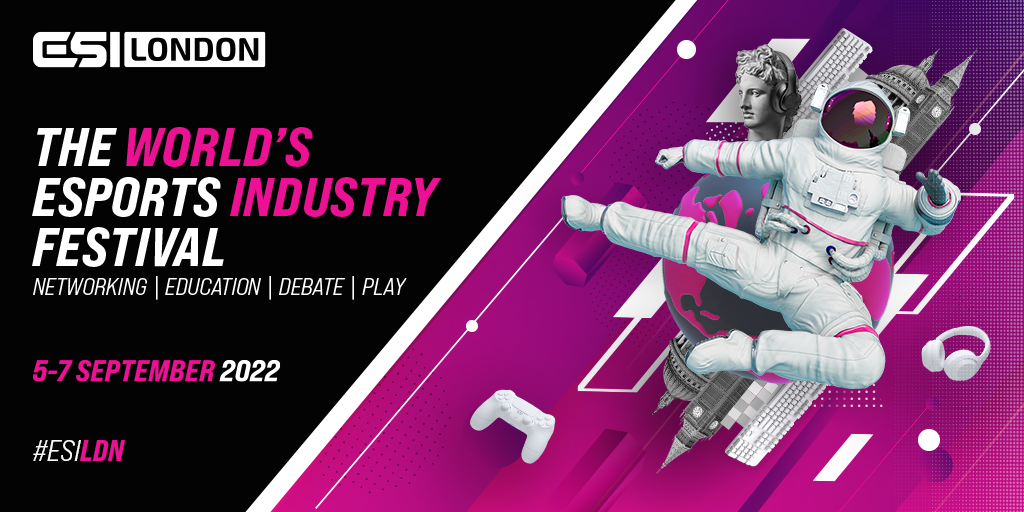Digital Isle of Man’s Esports Executive, Liam Slack, writes for Esports Insider to discuss esports’ growth and whether regulations can benefit the sector.

Esports is a rapidly developing industry that has piqued the interest of a wide range of stakeholders, from investors and governments to professional players and, in certain cases, mainstream audiences.
Small-scale, in-person tournaments organised in the early 2000s have developed into global events attracting millions of dollars in prizes and even more viewers. Dota 2’s The International 2021 (TI10) broke records by boasting a $40m prize allotment and the 2021 League of Legends World Championships recorded over 4m concurrent viewers. Despite noticeable growth, esports faces similar challenges to the sports industry. There is an inherent, and much needed, focus on gambling, gameplay and player integrity, as well as the protection of player rights, many of whom are minors.
The magnitude of financial interests in esports over a short time has highlighted a need for regulation to protect stakeholders within the esports ecosystem, but this has trailed behind as the industry continues to accelerate.
With regards to esports, the current guidelines consist of a few organisations offering independent governance services and a patchwork of country-based laws that leave a gap for standardised regulation. Organisations like the Esports Integrity Coalition (ESIC) and ESL Gaming have been at the forefront of competitive integrity enforcement, ranging from doping and cheating allegations to managing the role of gambling brands within independent esports tournaments, thus creating somewhat of a standard for esports regulation.
Without an official guiding standard, individual countries have largely applied gambling and lottery legislation to esports. This has led to different requirements for international tournaments and the live broadcasting of esports events worldwide. Moreover, these regulations apply title-by-title, meaning that an organisation may be able to promote its gambling partner within CS:GO, yet not in League of Legends. This is largely due to Riot Games’ stance against betting sponsorships, which is shown in rulebooks across League of Legends’ major competitions (LEC rulebook 7.2.5).
A lack of cohesive and appropriate regulation means that while baseline regulation for various elements of the esports industry exist, it hasn’t been tailor-made for the industry, leaving gaps.
According to the UK Gambling Commission, which is responsible for safeguarding consumers in esports, the popularity of esports with children raises the risks of underage gambling. Moreover, the commission acknowledges how a lack of standardisation in esports hinders event integrity. The lack of regulation isn’t just apparent in esports but within the gaming scene in general, especially when pertaining to gambling and the effects of loot boxes.
Nevertheless, it’s important to mention that despite its young demographic, the age group most likely to participate in esports betting are aged 25-34, according to UK Gambling Commission’s report.

There are many facets to esports that could benefit from catered regulatory support. Shouldn’t esports be treated as its own sector? Establishing safeguards appropriate for the industry and its interactions with consumers of content, as well as those involved in competitive play could offer multiple benefits.
A standardised code of industry conduct would provide a baseline for anti-corruption and doping prevention across the competitive landscape, hopefully lowering negative cases across high-stake tournaments.
The esports gambling industry, while the most highly regulated portion of the industry currently, faces long-term challenges around improving existing systems in fraud prevention and reporting. Safeguarding the esports community in the areas such as loot boxes, skins betting, and the added complication of cryptocurrency betting should hopefully allow the scene to prosper off these opportunities instead of being hindered by them. This is by no means holistic, with other such areas remaining without sufficient guardrails. Ultimately, this could lead to scandals and loss of confidence around a growing scene.
Esports targets an inherently younger demographic than traditional gambling, highlighting the importance of protecting youths from gambling involvement and maintaining appropriate guidance for targeted advertising via new digital mediums.
While current worker rights protection and contracts regulation apply to esports, the industry faces unique challenges as an appealing career for young video game enthusiasts. Many professional competitive players are under 18. Training and team requirements need regulation to ensure that competitors in esports are safeguarded against untenable working hours and inadequate compensation. This extends beyond working conditions, protecting the interests of esports competitors in terms of safeguarding winnings is just as crucial.
While the topic of career progression has come a long way in the last couple years, appropriate assistance with wealth management for those with careers in esports is also of importance considering the generally limited long-term viability of esports as a career for professional players currently.

While regulation is not without operational overhead, not addressing lacking regulation in an industry will over time disincentive long-term investment. Introducing regulation fit for purpose specifically for the esports industry will positively support investment by protecting investors and mitigating sector unknowns. It’s crucial though that the regulation appropriately covers the industry’s breadth, depth, complexity and vast array of contributors and consumers. After a decade of testing existing regulations against the esports industry, traditional regulation may not be the most effective approach.
As an international and interdisciplinary industry, esports would be better served by collaborative regulation development, drawing on local and international stakeholders to coordinate their approaches. This would allow standardisation that fosters a wide range of interests and that would be accessible regardless of location.
On September 6th at ESI London, Digital Isle of Man, in collaboration with the Esports Integrity Commission, will host a series of structured roundtable discussions at The Drum Wembley around industry pain points, potential models for solutions, and opportunities to improve the esports ecosystem. For more information and to register your interest in attending, click here!
From our sponsor Digital Isle of Man.

